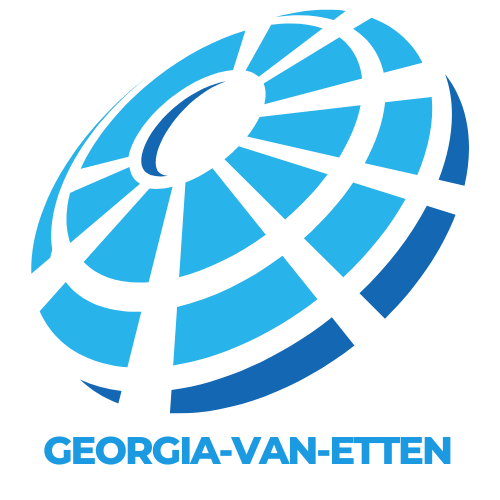Table of Contents
ToggleIn a world where avocado toast can cost an arm and a leg, mastering financial planning and budgeting is no longer just a nice-to-have—it’s essential. Picture this: a life where money woes don’t keep you up at night, and those spontaneous trips to the grocery store don’t lead to a budgetary hangover. By embracing the art of budgeting, anyone can transform their financial chaos into a well-orchestrated symphony.
Financial planning isn’t just for the Wall Street elite; it’s for everyone who dreams of sipping piña coladas on a beach rather than drowning in debt. With a solid budget in hand, individuals can navigate life’s unexpected twists and turns without breaking a sweat. So why not turn those financial frowns upside down? It’s time to take control and make your money work harder than a barista on a Monday morning.
Importance Of Financial Planning And Budgeting
Effective financial planning and budgeting serve as foundational pillars in an individual’s financial health. They support the process of setting clear financial goals, whether that includes saving for retirement, buying a home, or funding education. Decision-making becomes significantly easier when clear priorities are outlined in a budget.
A well-structured budget acts as a roadmap for both income and expenses. It allows individuals to track where money is spent and identify areas for potential savings. Keeping track of discretionary spending helps avoid overspending, which can lead to financial stress.
Financial planning provides a comprehensive view of future financial needs. Establishing an emergency fund mitigates the impact of unexpected expenses. This proactive approach reduces anxiety when life’s uncertainties arise.
Clarity in financial goals enables people to allocate resources effectively. Assigning specific amounts for savings, investments, and daily expenses helps maintain focus. Budgeting enables individuals to prioritize their spending according to their unique circumstances.
Incorporating regular reviews of financial plans enhances accountability and adaptability. Making necessary adjustments eliminates complacency, allowing individuals to shift strategies as life changes. Emphasizing the importance of habit will lead to sustained financial well-being.
Understanding financial tools and resources increases confidence in decision-making. Utilizing budgeting apps or consulting with financial advisors can provide additional insights. An informed approach fosters a sense of empowerment when navigating financial landscapes.
Key Benefits Of Financial Planning
Financial planning offers significant advantages that contribute to overall financial well-being. Not only does it provide clarity, but it also makes managing money less daunting.
Improved Financial Management
Effective financial management stems from a well-structured budget that allows individuals to track expenses and allocate funds sensibly. Budgeting offers insight into spending habits, identifying areas for potential savings. By monitoring cash flow, individuals can make informed decisions that prevent overspending, ensuring funds are available for essential needs. Additionally, regular reviews of financial goals enhance accountability and adaptability, promoting healthier financial practices.
Goal Setting And Achievement
Setting clear financial goals transforms aspirations into achievable milestones. Individuals can focus on what matters most, whether saving for a home, a vacation, or retirement. Goals provide motivation and direction, enabling better prioritization of resources. Tracking progress toward these goals reinforces financial discipline. Celebrating achievements along the way boosts confidence and resilience, paving the way for long-term financial success.
Effective Budgeting Techniques
Effective budgeting techniques play a vital role in financial management. They help individuals maximize their resources while minimizing stress.
Zero-Based Budgeting
Zero-based budgeting requires starting from scratch each budgeting cycle. Every dollar earned gets allocated to specific expenses or savings. This technique encourages prioritizing spending and eliminates unnecessary expenses. By rigorously justifying all expenses, individuals gain better control over their finances. Some individuals enjoy finding effective ways to cut costs, leading to substantial savings over time. For example, someone may realize they can reduce subscription services, freeing up funds for essential needs. Adapting this approach allows people to tailor their budget based on current needs and life changes.
50/30/20 Rule
The 50/30/20 rule simplifies budgeting into three categories. Fifty percent of income covers needs like housing and food. Thirty percent goes toward wants, such as entertainment and hobbies. The remaining twenty percent focuses on savings and debt repayment. This method offers a balanced approach to financial management, making budgeting more accessible. Adopting this strategy helps individuals identify their priorities easily and control their spending. For instance, a person could set aside funds for vacations while ensuring essential expenses are covered. Emphasizing clarity assists in reaching financial goals effectively.
Common Challenges In Financial Planning
Many individuals face common challenges during financial planning that can hinder their progress. Identifying unrealistic financial goals often leads to frustration. Setting achievable milestones is crucial for maintaining motivation and focus.
Unexpected expenses frequently disrupt carefully crafted budgets. Establishing an emergency fund can help mitigate financial strain during these situations. Individuals who prioritize saving can handle such surprises with greater ease.
Emotional spending also poses a significant challenge. Recognizing triggers and impulsive behaviors allows for better control over finances. Creating a budget encourages awareness of spending habits and supports healthier financial choices.
Inconsistent income adds another layer of complexity to financial management. Freelancers or those in commission-based jobs may experience fluctuations. Developing a flexible budgeting strategy that accommodates variable income can alleviate this concern.
Lack of financial literacy significantly impacts effective planning. Many individuals may not understand financial tools and resources available to them. Investing time in learning about personal finance can enhance decision-making skills and confidence.
Not regularly reviewing and adjusting financial plans creates stagnation. It’s essential to evaluate progress, reassess goals, and adapt strategies as circumstances change. By routinely monitoring financial health, individuals maintain accountability and ensure continued alignment with their objectives.
Finally, sharing financial responsibilities within families often introduces additional challenges. Communication about money matters can be difficult. Having open discussions about budgeting strategies fosters collaboration and unifies financial goals, ultimately leading to a more successful financial future.
Tools And Resources For Successful Budgeting
Various tools and resources enhance budgeting success. Mobile apps like Mint and YNAB (You Need A Budget) streamline tracking and categorize spending. These applications provide real-time updates, enabling users to adjust financial habits quickly. Financial modeling software helps users visualize their financial future, making it easier to set and achieve goals.
Spreadsheets also serve as effective budgeting resources. Microsoft Excel and Google Sheets allow users to customize their budgets according to personal needs. Many templates are available online, offering pre-structured formats that simplify the budgeting process.
Online courses and workshops offer valuable financial education. Organizations like Coursera and Udemy provide classes focused on personal finance and budgeting strategies. Structured learning programs increase financial literacy, allowing individuals to make informed decisions.
Books on personal finance can deepen understanding. Titles by authors like Dave Ramsey and Suze Orman outline budgeting principles and provide practical advice. Such literature serves as a guide for those looking to improve their financial management skills.
Community resources, such as local financial counseling services, also play a vital role. Nonprofit organizations often offer workshops and one-on-one consultations. These resources enable participants to embrace budgeting techniques tailored to unique financial situations.
Websites dedicated to personal finance provide an abundance of information. Blogs, forums, and financial news portals allow individuals to engage with budgeting tips and success stories. These platforms encourage a community of shared financial goals, fostering accountability and motivation.
Together, these tools and resources create a supportive framework for successful budgeting. Individuals equipped with proper knowledge can confidently navigate the complexities of personal finance. As a result, they experience greater control over their financial future, paving the way for long-term success.
Embracing financial planning and budgeting is essential for achieving a secure and stress-free financial future. By setting clear goals and sticking to a structured budget, individuals can navigate their financial landscape with confidence. The right tools and techniques empower them to track expenses and make informed decisions, ultimately leading to better financial health.
With a proactive approach, anyone can take control of their finances and transform aspirations into reality. Financial planning isn’t just for the wealthy; it’s a vital practice for everyone. By prioritizing budgeting and financial education, individuals can unlock the path to long-term success and peace of mind.







